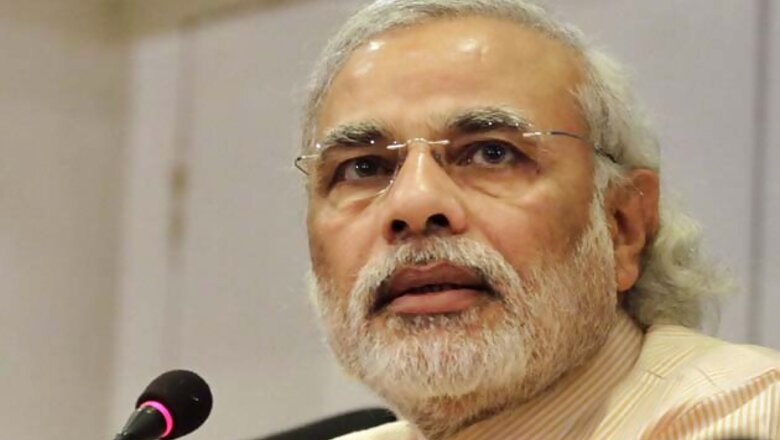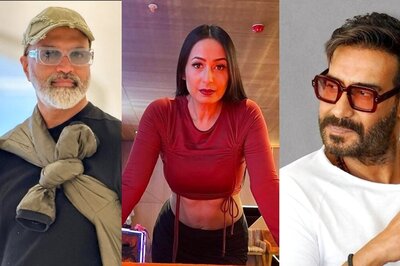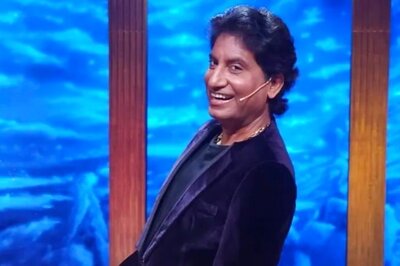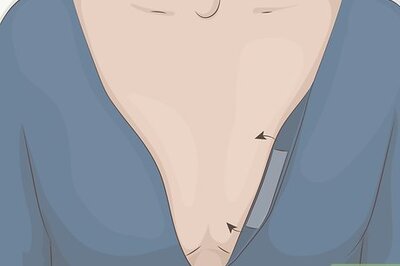
views
A total of 65 MPs wrote a letter to US President Barack Obama in late 2012 against granting Gujarat Chief Minister Narendra Modi a US visa. While one letter was signed by 25 Rajya Sabha MPs, the other was signed by 40 Lok Sabha members. The letters were written on November 26 and December 5, 2102 respectively and re-faxed to the White House on Sunday. Following is the full text of the two letters:
President Barack Obama,
The White House
1600 Pennsylvania Ave. NW
Washington, DC 20500
November 26, 2012
Subject: Human rights violations in the Indian State of Gujarat and the US policy on Chief Minister Narendra Modi
Dear Mr. President,
We, the undersigned members of India's Parliament, are writing to express our concern about a possible change in US policy with respect to Mr. Narendra Modi, Chief Minister of the Indian State of Gujarat. As you may know, the United States has barred Mr. Modi from entering the country, under Section 212 (a) (2) (g) of the Immigration and Nationality Act, that makes any foreign government official who "was responsible for or directly carried out, at any time, particularly severe violations of religious freedom" ineligible for a visa.
As you may recall, in 2002, Mr. Modi presided over one of the worst sectarian massacres in the history of independent India, which led to the killing of over 2,000 people, the rape of hundreds of women and the displacement of over 150,000 people. In the wake of these colossal and horrendous crimes against humanity, several governments across the world decided to boycott Mr. Modi and his state administration.
In March of 2005 and again in June of 2008, a number of Congresspersons in the United States wrote to then - Secretary of State Condoleezza Rice to express their profound concern over a possible visit to the US by Mr. Narendra Modi. Based on these concerns, and the recommendation of the United States Commission for International Religious Freedom (USCIRF), the State Department has rightly kept in place the ban on Mr. Modi's entry to the US.
However, there are reports that the State Department could be considering a change in this longstanding policy with respect to Mr. Modi's US visa. These reports are all the more disconcerting, in the context of the statement made by US Assistant Secretary of State for South and Central Asia Robert Blake in which he is reported to have indicated that Mr. Modi was free to apply for another visa.
We wish to respectfully urge you to maintain the current policy of denying Mr. Modi a visa to the United States. Given that legal cases against the culprits including many senior officials in Mr. Modi's administration are still pending in the court of law, any revoking of the ban at this juncture would be seen as a dismissal of the issues concerning Mr. Modi's role in the horrific massacres of 2002. It would legitimize Mr. Modi's human rights violations and seriously impact the nature of US-India relations by sending a message that the United States values economic interests over and above the universal values of human rights and justice.
Mr. Modi's personal complicity in the pogrom has been documented by national NGOs including India's own National Human Rights Commission (NHRC), international human rights organizations as well as investigative journalists. The recent conviction of a sitting member of the Gujarat Legislative Assembly, Maya Kodnani of the BJP, is actually a damning indictment of the Modi administration, and proof that the pogrom was planned and executed at the highest levels of the state government.
Mr. Modi has not only obstructed the course of justice, he has also failed to provide rehabilitation to the survivors of whom 16,000 continue to live in refugee colonies lacking basic amenities. Of the hundreds of women raped in 2002, there have been convictions in only two cases. His administration has even ignored a court order to restore the places of worship that were attacked and destroyed during the pogrom of 2002. Mr. Modi's administration has curtailed religious freedom by legislating a ban on religious conversion.
Unfortunately, Mr. Modi's relentless efforts at rehabilitating his own image, including a campaign by his PR firm, APCO Worldwide have created an illusion of Gujarat as a prosperous, progressive state. The reality on the ground could not be further from the truth.
Not much has changed in the last 10 years since those mass killings took place in Gujarat. Barring a handful of convictions, the hundreds of perpetrators who roamed the streets of Gujarat in February and March of 2002, killing, raping and destroying property continue to evade the law. Even these few convictions have been obtained through the sheer tenacity of NGOs and human rights activists in the face of harassment and obstruction of justice by Mr. Modi's administration.
The viciousness and barbarism that marked the Gujarat pogrom of 2002 including the burning alive of hundreds of people, and brutal sexual violence against women, make the Gujarat riots among the worst human rights violations in recent history.
In this regard, we, as human beings and as Members of India's Parliament, respectfully urge you to direct the State Department to maintain the ban on Mr. Narendra Modi's US visa. Such a ban would be consistent with US law and the shared values of the United States and India, and represent a formidable defense of the principles of human rights. Maintaining the longstanding US policy on Mr. Narendra Modi's visa is important for the ongoing struggle for justice in Gujarat.
As India and the United States address the challenges facing our societies, the time to come together on issues of human rights and justice could not have been more opportune. We sincerely urge you to fulfill our request and stand in solidarity with the survivors, human rights activists and all those who value justice and freedom of religion.
Sincerely,
Names and Signatures of Indian MPs
(The text in both the Lok Sabha and Rajya Sabha letters is identical)
####

























Comments
0 comment